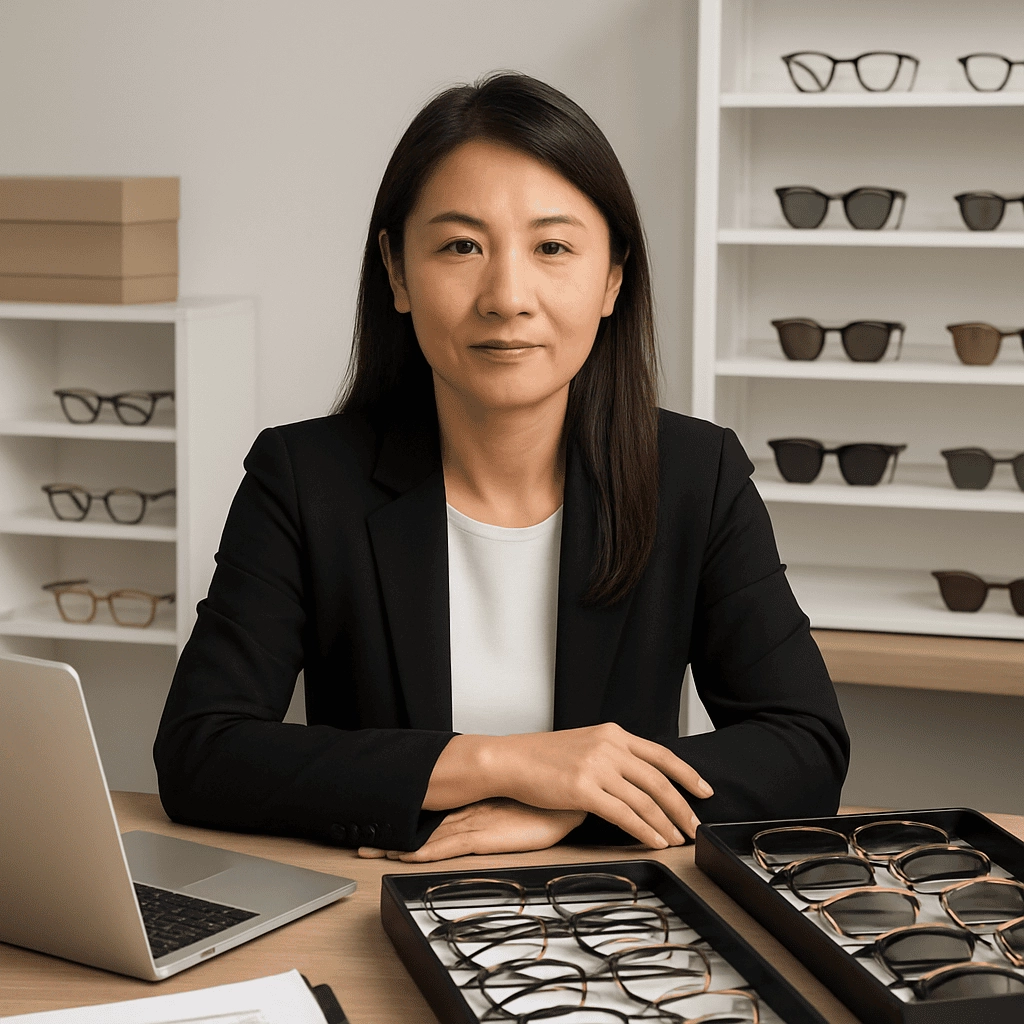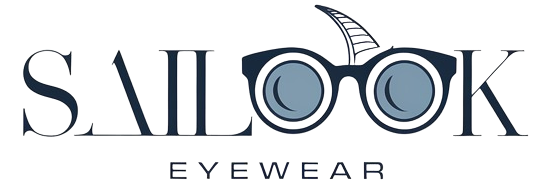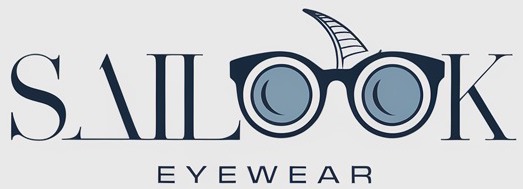Finding a reliable eyewear supplier is crucial for businesses looking to provide high-quality products to their customers. The importance of selecting a trustworthy supplier cannot be overstated. In this article, we will guide you through the process of identifying, evaluating, and building long-term relationships with eyewear suppliers who can meet your specific business needs. Whether you are a small startup or an established brand, the right supplier will have a significant impact on the quality of your products, your business reputation, and your customer satisfaction.

1. Why Should You Find a Reliable Eyewear Supplier?
Finding a trustworthy eyewear supplier is not just about getting the best price; it’s about ensuring the quality, consistency, and timely delivery of your products. Without a reliable supplier, businesses face risks such as product defects, delays, and a damaged reputation. A trustworthy supplier will ensure that your customers receive high-quality products on time, every time. But here’s the kicker: the right supplier doesn’t just offer reliability; they contribute to your overall business success.
It’s essential to remember that the eyewear industry is highly competitive, and your business cannot afford to work with suppliers who cut corners or fail to meet deadlines. By selecting a dependable partner, you’re safeguarding the future of your business. Suppliers with experience, proper certifications, and strong relationships in the industry are the key to ensuring long-term success.
Choosing a reliable supplier is crucial for several reasons:
● They ensure the delivery of high-quality products, consistently meeting your standards.
● They help maintain your business reputation by avoiding delays and quality issues.
● They contribute to a stable and long-term business relationship that can be leveraged for future growth.
| Supplier Type | Advantages | Risks | Considerations |
|---|---|---|---|
| Wholesale Supplier | Bulk pricing, stable supply | Less customization, long lead times | Suitable for established brands |
| Custom Supplier | Tailored designs, smaller orders | Higher costs, longer production cycles | Ideal for unique or niche products |
| International Supplier | Wide selection, potential cost savings | Potential language and shipping issues | Choose based on specific needs |
2. What to Look for in a Reliable Eyewear Supplier?
When selecting an eyewear supplier, several key characteristics should guide your decision-making process. The most important factors include reliability, quality, and their ability to meet your specific needs. A good supplier must provide consistent quality, meet deadlines, and offer the flexibility to adapt to your business’s changing requirements.
One of the first things to evaluate is the supplier’s certifications. You should look for suppliers who meet international standards, such as ISO certification or CE marking for eyewear, which ensures that their products comply with safety and quality standards. Here’s the real story: certifications show a supplier’s commitment to maintaining high-quality standards and can act as a safeguard against subpar products.
Additionally, a supplier’s experience in the industry is critical. Look for a supplier who has been in the eyewear business for several years and has a proven track record of delivering products that meet your specifications. This shows that they have the necessary expertise to handle various materials and designs.
| Key Factor | Importance | What to Look For | Example Criteria |
|---|---|---|---|
| Certifications | Ensure compliance with safety standards | CE, ISO 9001, FDA approved | Internationally recognized standards |
| Experience | Ensure expertise in the industry | Years in business, number of clients | Over 5 years in eyewear manufacturing |
| Customer Service | Help resolve issues quickly and professionally | Responsiveness, support channels | 24/7 support, dedicated account manager |
3. How Can You Verify the Credibility of Eyewear Suppliers?
Verifying the credibility of your potential eyewear supplier is crucial to ensure that they are trustworthy and capable of meeting your business needs. This is where it gets interesting: there are several ways to verify the credibility of a supplier, starting with reviewing their certifications and customer feedback.
One of the most effective ways to check a supplier’s credibility is by looking at their client list and reading reviews. If a supplier has worked with reputable brands and has positive reviews from customers, it’s a good sign that they are dependable. Ready for the good part? You can also ask for references from current or past customers to gain insight into their experiences.
Another method to verify credibility is by requesting product samples. This gives you a first-hand experience of the product’s quality. If the supplier is hesitant or refuses to provide samples, this could be a red flag.
| Verification Method | Pros | Cons | How to Use It |
|---|---|---|---|
| Customer Reviews | Shows supplier reliability and reputation | May not always be fully accurate | Look for consistent positive feedback |
| References | Provides insights from other businesses | May be biased | Contact at least 3 references |
| Product Samples | Ensures product quality | May take time to receive | Request multiple samples for comparison |
4. Where Can You Find Trusted Eyewear Suppliers?
Finding trusted eyewear suppliers can be a challenge, especially with so many options available. But here’s the kicker: with the right approach, you can easily find suppliers who meet your needs and align with your business goals. There are several avenues to explore when searching for a reliable supplier.
Online platforms such as Alibaba, Global Sources, and ThomasNet offer extensive directories of suppliers. These platforms allow you to search for suppliers based on location, product type, and certifications. You can also read customer reviews and ratings to get a better sense of the supplier’s reliability.
Networking at trade shows is another excellent way to find suppliers. These events offer an opportunity to meet suppliers in person, see their products up close, and ask questions about their capabilities. Here’s the real story: building relationships at trade shows can result in long-term partnerships that are more beneficial than finding suppliers online.
| Source Type | Benefits | Challenges | Example Platforms |
|---|---|---|---|
| Online Directories | Easy to search, large selection | Can be overwhelming, need for verification | Alibaba, Global Sources |
| Trade Shows | Direct interaction, see products in person | Travel and time-consuming | Vision Expo, MIDO |
| Referrals from Industry Contacts | Trustworthy recommendations, easier verification | May limit options | Ask other eyewear brands |
5. How Do You Evaluate Eyewear Suppliers?
Evaluating potential eyewear suppliers is crucial for ensuring that they meet your business requirements. What’s the real story? It’s not just about finding the lowest price; it’s about finding a supplier who provides the best value.
Start by comparing prices, but don’t forget to assess the quality of materials used, production capabilities, and their ability to meet delivery deadlines. Some suppliers may offer lower prices but compromise on quality, while others may offer premium products at a higher price.
Next, examine the supplier’s production capacity. A good supplier should be able to scale production to meet your demands, whether you’re a small business or a large enterprise.
| Criteria | Low Priority | High Priority | Example of Good Suppliers |
|---|---|---|---|
| Price | Doesn’t always correlate with quality | Balance quality and cost | Suppliers with transparent pricing |
| Production Capacity | Small batches, less flexibility | Ability to scale production, meet deadlines | Established manufacturers |
| Lead Time | Can vary between suppliers | Timely delivery, reliable schedules | Suppliers with predictable lead times |
6. What Types of Eyewear Suppliers Are There?
There are several types of eyewear suppliers, each serving different business needs. This is where it gets interesting: understanding the type of supplier you need is key to selecting the right partner.
Wholesale suppliers are ideal for businesses that need large quantities of eyewear at competitive prices. They typically offer standard designs and minimal customization. On the other hand, custom suppliers specialize in creating unique eyewear designs tailored to specific needs. These suppliers are perfect for businesses that want to offer distinctive products.
| Supplier Type | Advantages | Disadvantages | Best Fit |
|---|---|---|---|
| Wholesale Supplier | Bulk pricing, stable supply | Less customization, long lead times | Large brands, high volume |
| Custom Supplier | Tailored designs, smaller orders | Higher costs, longer production cycles | Niche brands, startups |
| International Supplier | Wide selection, potential cost savings | Potential language and shipping issues | Businesses seeking variety |
7. How Can You Negotiate Terms with Eyewear Suppliers?
Negotiating terms with an eyewear supplier is a critical aspect of building a successful partnership. Ready for the good part? The key to successful negotiation lies in clear expectations and mutual understanding.
Start by discussing pricing structures, payment terms, and order volumes. Negotiating discounts for bulk orders is often possible, especially with suppliers who are eager to build long-term relationships. Make sure to set clear expectations for delivery times and quality standards to avoid misunderstandings later.
| Negotiation Point | Considerations | Best Practices |
|---|---|---|
| Pricing | Bulk discounts, seasonal promotions | Negotiate based on volume |
| Payment Terms | Upfront payments vs. credit terms | Establish clear payment schedules |
| Lead Time | Deadlines for production and delivery | Clarify timelines in writing |
8. Why Is Communication Crucial with Your Eyewear Supplier?
Clear communication with your eyewear supplier is essential for maintaining a smooth workflow. But here’s the kicker: poor communication can lead to delays, quality issues, and misunderstandings.
To ensure smooth operations, establish regular check-ins and feedback loops with your supplier. Use technology to stay connected, whether it’s through email, project management tools, or instant messaging apps. The more effectively you communicate, the better the results.
| Communication Channel | Advantages | Best For | Example Tools |
|---|---|---|---|
| Easy documentation, formal communication | Formal updates, detailed discussions | Gmail, Outlook | |
| Project Management Tools | Streamlines tasks, ensures deadlines | Large projects, ongoing orders | Trello, Asana |
| Instant Messaging | Quick responses, real-time conversations | Immediate clarifications | Slack, WhatsApp |
9. What Are the Most Common Mistakes to Avoid When Choosing an Eyewear Supplier?
When selecting an eyewear supplier, businesses often make the mistake of focusing too much on price. What’s the real story? The lowest price is not always the best value, and compromising on quality can harm your reputation in the long run.
| Mistake | Consequence | How to Avoid It |
|---|---|---|
| Focusing only on price | Poor quality, higher return rates | Prioritize quality alongside cost |
| Ignoring capacity | Delays, unmet orders | Ensure supplier can scale production |
| Not checking certifications | Risk of non-compliant products | Always check certifications and credentials |
10. How Can You Test the Products from Your Eyewear Supplier?
Testing products from your eyewear supplier is essential for ensuring they meet your quality standards. Here’s the real story: product samples are an excellent way to evaluate materials and craftsmanship before placing large orders.
| Testing Method | Benefits | Challenges |
|---|---|---|
| Product Samples | Ensures quality, tests design | May take time, additional costs |
| Quality Control Tests | Ensures durability and function | Requires resources and expertise |
| Design Evaluation | Evaluates aesthetics and fit | Subjective interpretation |
11. How Do You Manage a Relationship with Your Eyewear Supplier?
A strong supplier relationship is essential for maintaining consistent quality and reliability. Ready for the good part? Building a solid, long-term relationship helps prevent misunderstandings and ensures that your business will always have reliable support.
| Relationship Building | Benefits | Best Practices |
|---|---|---|
| Regular Communication | Reduces misunderstandings, improves trust | Set clear expectations, schedule check-ins |
| Performance Reviews | Ensures continuous improvement | Conduct quarterly evaluations |
| Conflict Resolution | Resolves issues efficiently | Address issues promptly and professionally |
12. What Are the Legal Considerations When Working with Eyewear Suppliers?
When working with eyewear suppliers, it’s essential to address legal considerations upfront. This is where it gets interesting: contracts, intellectual property rights, and compliance with trade laws are all critical factors.
Ensure that you draft a clear contract that outlines payment terms, delivery schedules, and product specifications. This helps avoid disputes later and ensures that both parties understand their obligations.
| Legal Consideration | Importance | What to Do |
|---|---|---|
| Contracts | Protects both parties, ensures clarity | Always have a formal, written contract |
| Intellectual Property | Safeguards designs and innovations | Protect your designs with patents |
| Trade Regulations | Ensures compliance with laws | Understand customs and trade requirements |
13. How Can Technology Help in Sourcing Eyewear Suppliers?
In today’s digital age, technology plays a key role in finding and managing eyewear suppliers. But here’s the kicker: using B2B platforms and supplier management software can significantly streamline the sourcing process.
| Technology Used | Benefits | How It Helps |
|---|---|---|
| B2B Platforms | Easy search, direct supplier contact | Efficient, centralized supplier database |
| Supplier Management | Streamlines processes, manages orders | Track orders, monitor performance |
| Data Analytics | Evaluates supplier performance | Assess reliability, improve sourcing |
14. How Can You Scale Your Eyewear Business with the Right Supplier?
Finding the right eyewear supplier is crucial for scaling your business. Ready for the good part? When you partner with a reliable, scalable supplier, you ensure that your business can handle increased demand without sacrificing product quality.
| Scaling Factor | Importance | How to Manage |
|---|---|---|
| Supplier Capacity | Can meet growing demand | Ensure flexibility and scalability |
| Quality Control | Maintains product standards | Implement regular quality checks |
| Logistics and Delivery | Timely deliveries | Work closely with suppliers to optimize logistics |
15. Conclusion: How to Ensure Ongoing Success with Your Eyewear Supplier
In conclusion, selecting the right eyewear supplier is one of the most important decisions you can make for your business. This is where it gets interesting: by focusing on the right factors, like quality, communication, and reliability, you can build a partnership that lasts for years and contributes to your success.
| Conclusion Element | Key Point | Action Item |
|---|---|---|
| Supplier Evaluation | Look for quality, experience, and reliability | Conduct thorough research and checks |
| Long-Term Relationship | Build a strong, trustworthy partnership | Foster open communication and trust |
FAQ Section
Q1: What is a trustworthy eyewear supplier?
A trustworthy eyewear supplier is one that provides high-quality products, meets delivery deadlines, and offers excellent customer service. They should have proper certifications and a good reputation within the industry.
Q2: How does the supplier selection process work?
The supplier selection process involves evaluating the supplier’s experience, product quality, pricing, and reliability. It is also important to assess their ability to meet deadlines and handle your order volumes.
Q3: What should I look for when choosing an eyewear supplier?
Look for key features such as quality control measures, certification, experience in the industry, and strong customer service. You should also ensure they can meet your business needs in terms of volume and design customization.
Q4: How can I check if an eyewear supplier is reliable?
You can check their legitimacy by reviewing customer testimonials, checking for certifications, and reviewing their history with other businesses. Be wary of suppliers with no reviews or unverified claims.
Q5: Why is communication important with my eyewear supplier?
Effective communication ensures that both parties are aligned on expectations and goals. It helps prevent misunderstandings, improves the flow of orders, and ensures any issues are addressed quickly.

